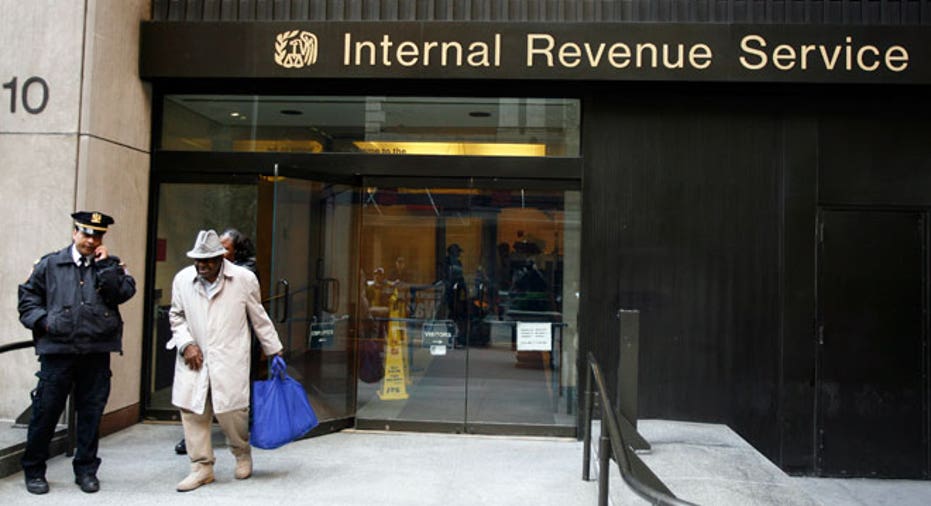Owe Money to Uncle Sam? What the IRS Can and Can’t Do

If you are unable to pay your tax liability, your account ends up in the IRS collection department and that can leave you wondering what they are going to do. While your mind might wander to what kind of penalties they can impose, it’s important to know your rights.
Many clients have come to me saying “I didn’t pay my taxes when they were due last week. Is the IRS going to levy my checking account?” The answer is no, at least not right now.
The IRS has a set procedure when it comes to collecting unpaid taxes. First of all, it takes a couple of weeks (sometimes longer depending on when in the cycle your return is received) to process your income tax return. If you file on April 15, the peak day of tax season, it may take as long as six to eight weeks for the IRS to figure out that you owe. If you file on Jan. 15, it will probably take the agency a week to process your return. Even then, you have until April 15 to pay without the beginning of collection activity.
Once the IRS knows you haven’t paid, automatic collection activity begins--but only the computer is assigned to your case. You will not be actively pursued except through correspondence. A series of three bills will be sent to you over approximately a six month period. If payment is not received by the end of this cycle, your account will go to collections. If you can pay off the debt within this time frame, you don’t have to set up an installment agreement, just make payments when each bill arrives.
If you can’t afford your taxes, it is in your best interest to look for any way to pay off the bill since penalties and interest on the balance accrue at astounding rates. The penalty for failure to pay will mount to and max out at 25% of the tax liability within five months.
The IRS has 10 years from the date the tax was assessed to collect the balance due. There are some actions that may increase the statute of limitations. For example, the IRS may suspend collections and extend the statute while considering an offer in compromise or innocent spouse relief cases or if you agree to an extension during an audit.
Don’t bury your head in the sand in this situation, open the correspondence you receive from the IRS and deal with it. When the six-month billing cycle is complete and if you haven’t paid, you will likely receive a notice of intent to levy. At this point, it’s best to call them. If you don’t establish contact with the IRS it will not think twice about seizing your bank account, garnishing your wages or sending levy requests to anyone who has ever issued a 1099 to you. How embarrassing.
If you cannot bring yourself to pick up the phone, your tax pro can call for you. You would sign an IRS Form 2848 Power of Attorney giving your tax pro the authority to speak on your behalf.
When you call, explain why you are not paying. Perhaps you are out of work, or ill, or suffering from some other hardship. The folks there are very nice, and with the advent of the Fresh Start Program they are more than willing to help you. You may be deemed uncollectible, which means all collection activity will be suspended for a year while you get it together. The collector may be able to set up an installment agreement for the balance due or suggest submitting an Offer in Compromise. There are many possibilities that will enable you to sleep at night.
Note that the IRS can’t seize your property if you have a current or pending Installment Agreement, Offer in Compromise, or if it agrees that you’re unable to pay due to economic hardship, meaning seizing your property would result in your inability to meet basic, reasonable living expenses. So don’t be afraid to contact them to work it out--it’s a lot less stressful and embarrassing than having your money or property seized.
If you can’t make headway with a collection representative you are entitled to have the case reviewed with the collection manager, and you have the right to an appeal process.
IRS Publication 594 provides complete information on the collection process.
Bonnie Lee is an Enrolled Agent admitted to practice and representing taxpayers in all fifty states at all levels within the Internal Revenue Service. She is the owner of Taxpertise in Sonoma, CA and the author of Entrepreneur Press book, “Taxpertise, The Complete Book of Dirty Little Secrets and Hidden Deductions for Small Business that the IRS Doesn't Want You to Know.” Follow Bonnie Lee on Twitter at BLTaxpertise and at Facebook.



















